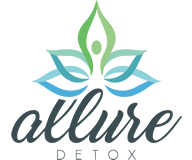Table of Contents
- 1 WHAT IS INDIVIDUAL THERAPY?
- 2 WHY DO YOU HAVE INDIVIDUAL COUNSELING IN ADDICTION TREATMENT?
- 3 WHAT CAN YOU EXPECT FROM INDIVIDUAL THERAPY?
- 4 WHAT IS THE ROLE OF AN ADDICTION COUNSELOR?
- 5 WHAT IS THE DIFFERENCE BETWEEN INDIVIDUAL THERAPY AND GROUP THERAPY?
- 6 WHAT TYPE OF TREATMENT IS BEST?
- 7 WHAT TYPES OF THERAPY CAN YOU OBTAIN IN TREATMENT?
- 8 FAQ
WHAT IS INDIVIDUAL THERAPY?
Individual therapy is when you work one-on-one with a mental health professional. It takes place in a safe location where you and your therapist can explore the unhealthy ways in which you are thinking. Then, you can discover how these unhealthy thoughts are contributing to unhealthy behaviors. During these sessions, you will be able to discuss anything. This includes difficult occurrences from the past, dysfunctional relationships, and the troubles you may be having with your family members.

The therapist’s job will be to help you closely examine what happened to you in the past. Then, you will be able to see that the past is affecting how you live your life today. Another part of individual counseling is developing goals that you hope to achieve. For example, you may want to learn how you can abstain from drugs or alcohol. Individual counseling gives you a place where you will always have someone by your side so that you can accomplish your goals with plans you create together.
WHY DO YOU HAVE INDIVIDUAL COUNSELING IN ADDICTION TREATMENT?
The reason that you or your loved one became addicted to substances may be because of past trauma or negative experiences that are haunting you to this day. These would be the “underlying issues” that drove you toward your substance of choice. Individual therapy is an excellent place to confront these underlying issues.
Individual counseling is necessary after you complete the detoxification process because substances no longer have a hold on you at this point. After detox, there isn’t anything masking your negative emotions, and you are forced to experience them. This can be extremely difficult, but your counselor will be with you to help you navigate your new reality. If you don’t have this, you aren’t likely to remain sober for the rest of your life.
You also need to think about how you will handle yourself in the future. For example, you must learn how to react in a different way when your triggers present themselves. In the past, when a negative memory popped up, you chased it away with drugs or alcohol. Instead, your therapist will help you learn positive behaviors so that you can remain sober.
WHAT CAN YOU EXPECT FROM INDIVIDUAL THERAPY?
In most cases, individual counseling sessions take place for one hour per week. However, your therapist may determine that you need to attend therapy sessions more often than that. The first time you meet with your therapist, he or she will ask questions to get to know you. He or she will want to know your background and what you hope to accomplish in therapy. Your therapist may give you documents to fill out, including family history, medical history and other initial assessments.
After the initial session, you and your therapist will begin work on changing the negative thoughts that you are in the habit of thinking and the behaviors that come from those thoughts. You will also work on how to deal effectively with negative emotions and achieve your goals.
WHAT IS THE ROLE OF AN ADDICTION COUNSELOR?
Addiction counseling is a way to help patients who have gone through alcohol abuse or alcohol addiction and even drug abuse. The addiction counselor’s job is to determine why they have started to take a substance of choice in the first place. During the addiction therapy session, the patient can share their feelings about many things, and their therapist will help them process those feelings. The therapist will help the patient recognize when they are falling into their negative thought patterns and the negative addictive behaviors that result from them.
It is also the counselor’s job to help the patient recognize their triggers when they present themselves, but he or she will also teach them coping skills that prevent them from performing old behaviors. Most importantly, their therapist will develop a long-term plan for remaining sober.
In addition to the previous actions, the patient’s individual counselor will do the following for the addiction recovery program and relapse prevention:
- Create a substance abuse treatment plan specifically for you that addresses your goals and your needs.
- Administer substance tests to make sure that the therapy is effective.
- Arrange for support group therapy sessions.
- Offer psychotherapy and psychoeducation.
- Provide family therapy, couples therapy, and individual therapy to determine where the problem with substances began.
- Be a constant force of support for you during the rehab program.
- Evaluate your progress for self-awareness.
WHAT IS THE DIFFERENCE BETWEEN INDIVIDUAL THERAPY AND GROUP THERAPY?
It is imperative that you engage in individual therapy and group therapy if you want to remain sober for the rest of your life. Addiction treatment programs work best when we offer both types of therapy together. In group therapy, two or more therapists will work together with as many as 15 clients. The group may address one topic at a time, including grief, anxiety, or even how you can improve your social skills.
The main difference between individual therapy and group therapy is that you will not receive individual attention in group therapy. The focus of group therapy will be to create a cohesive group that will be a support system for everyone, so you will have the opportunity to interact with individual people during group therapy.
You must have individual therapy in addiction treatment because it can be hard to share in a group when you are first starting out. Having your own therapist eliminates the awkwardness that you may feel in the beginning. Individual counseling is also the place where you can focus on the goals that are specific to you.
Addiction treatment requires that you receive both types of therapy. If you need to spend more time on the lessons you learn in group therapy, you can do so in individual therapy. This ensures that you ingrain the lessons you learned from group therapy as deeply as possible.
WHAT TYPE OF TREATMENT IS BEST?
You have the option of choosing residential, inpatient treatment, or outpatient programs. If you choose residential treatment, you will live at the facility. This is beneficial because you will not be near the triggers that encourage you to use your substance of choice. The program will last for several weeks or even months, and you will learn new skills that will help you remain sober forever.
You also have the option of selecting outpatient treatment, which has been shown to work just as well as residential treatment for those addicted to substances. With outpatient treatment, you will be able to live where you want. This option is for you if you live in an environment with a support system in place. You will visit the treatment center for several hours each day in outpatient treatment.
WHAT TYPES OF THERAPY CAN YOU OBTAIN IN TREATMENT?
You can take part in several therapies in addiction treatment, including the following:
Cognitive Behavior Therapy
Cognitive behavior therapy is highly important in addiction treatment. With this type of therapy, you will learn which situations, moods or thoughts often lead you to crave your drug of choice. In cognitive behavior therapy or CBT, you will learn how to avoid these triggers. Your therapist will also help you switch the negative emotions and thoughts that lead to substance use to positive emotions and thoughts that encourage you to leave your drug of choice behind. Skills that you learn in CBT often last for your entire life, so it is very important that you engage in this therapy.
Dialectical Behavior Therapy
Another option is dialectical behavior therapy or DBT. This behavioral health therapy teaches you to accept your reality and the changes that it brings. DBT works by focusing on the instances and behaviors that precede substance use. Then, it emphasizes the healthy behaviors that have resulted in keeping you from seeking your drug of choice.
Mindfulness, Guided Imagery, Hypnotherapy and Meditation
The therapies listed above begin with teaching you how to identify your triggers. Then, you learn how to control your stress responses and use deep relaxation techniques. The point of these therapies is to place you in a deep sense of relaxation so that you can use your new coping strategies to manage stress, cravings and feelings.
Contingency Management Therapy
Contingency management offers you positive reinforcement for the purpose of remaining sober. You will receive vouchers for good behavior that you can exchange for privileges.
Holistic Therapies
Holistic therapy allows you to practice the introspection skills you learn in traditional therapies. They are therapy types that may be more amenable to you than the traditional kinds. For example, you may be able to express yourself more freely during a yoga session, equine therapy, or music therapy.
Allure Detox is a treatment center located in West Palm Beach that begins with detoxifying your body. This is only the beginning of the treatment, so we take things to their logical conclusion by providing treatment for your psychological addiction. As a treatment provider for alcohol rehab and other substance use disorders and drug use, we offer you or your loved one several traditional therapy modalities as well as holistic therapies by our clinicians so that we can treat the whole person. We teach people how to live their best lives again. Contact us today at Allure Detox.
FAQ
What is the first step in the treatment process for addiction?
Published on: 2022-02-27
Updated on: 2023-11-03


